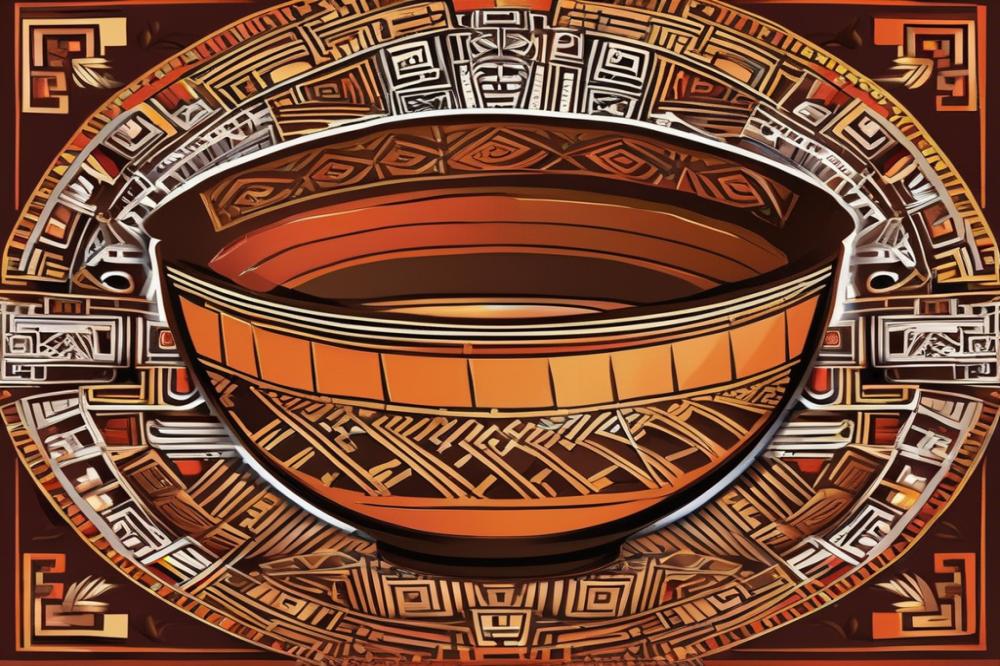Exploring the Caribbean Cacao Heritage
The Caribbean boasts a rich heritage in cacao production that stretches back centuries. Cultivating cacao is not merely an agricultural practice here; it forms an essential part of the region’s identity. Several islands in this vibrant archipelago contribute to the global market by producing various cacao varieties. This diversity reflects the unique climates and traditions of each locale.
Cuban chocolate holds a special place within this cultural landscape. It represents more than just a treat; it is a symbol of the country’s culinary artistry and historical significance. In Cuba, chocolate plays a vital role in traditional cuisine and celebrations. The process is deeply intertwined with local customs, highlighting the importance of artisan chocolate making.
This article aims to delve into the Cuban chocolate Festival, a remarkable event celebrating the country’s cacao culture. Festivals centered on food often reveal much about a society’s values and practices. Through activities such as chocolate tasting and workshops on sustainable farming, attendees can gain insight into the dedication behind each bar of chocolate. Join us on this journey to explore the flavors, traditions, and vibrant community surrounding one of the Caribbean’s most beloved festivals.
Cuban Chocolate: A Journey Through cacao culture

Cacao production in Cuba has roots that stretch back for centuries. The island’s rich soil and favorable climate create an ideal environment for growing cacao. Farmers cultivate beans in regions like Baracoa, known as the birthplace of cacao in the Caribbean. This area produces high-quality pods essential for the artisan chocolate industry.
There is a growing focus on sustainable farming practices among Cuban cacao farmers. Organic methods help protect the environment while improving bean quality. By avoiding harmful chemicals, farmers maintain the health of the land and enhance the flavor profiles of their beans. This approach aligns with global trends towards more eco-friendly agricultural practices.
Many cacao varieties flourish in Cuba, reflecting a diverse genetic heritage. The Criollo variety is highly prized for its complex flavors and aroma. Meanwhile, the Trinitario variety offers a balance of resilience and taste, making it a favorite for chocolatiers. Each type contributes something special to the overall landscape of Cuban cuisine.
The cultural heritage tied to cacao is deeply embedded in the island’s history. The upcoming Chocolate Festival is a celebration of this legacy. Visitors will experience chocolate tastings that highlight the unique attributes of Cuba’s cacao. The event showcases the artistry involved in crafting fine chocolates, connecting people through shared appreciation for this beloved treat.
The Cuban Chocolate Festival: An Overview

Every year, the Cuban Chocolate Festival draws attention to the rich tradition of cacao production in the Caribbean. This vibrant event celebrates artisan chocolate and highlights local culture. Held in various cities across the island, the festival takes place over several days, attracting both locals and tourists alike.
Key events during the festival offer a blend of education and entertainment. Chocolate tastings allow visitors to savor different cacao varieties, showcasing the diverse flavors that emerge from Cuba’s unique climate. Workshops provide hands-on experiences, teaching participants about chocolate making. Cooking demonstrations highlight how chocolate can enhance traditional Cuban cuisine. These activities make the chocolate festival a true food festival experience.
Local artisans play an essential role at the festival. Their commitment to sustainable farming practices is evident in the quality of their products. Many showcase their handmade chocolates, which represent a blend of tradition and innovation. By sharing skills and stories, these artisans promote the cultural heritage of cacao in Cuba. Through their efforts, they foster community pride and support local economies.
In summary, the festival is a lively celebration of all things chocolate. Visitors leave with not only a taste of the delicacies but also a deeper appreciation for the artistry behind Cuban chocolate.
Cuban Cuisine and Chocolate: A Perfect Pairing

Chocolate plays an important role in Cuban cuisine. From rich desserts to savory dishes, cacao adds depth and flavor. This natural ingredient reflects the island’s vibrant culture and history. It is no surprise that the Caribbean chocolate festival highlights these connections.
Exploration of Chocolate’s Place in Cuban Cuisine
Cuban dishes often incorporate chocolate in unexpected ways. Traditional meals sometimes feature a dash of cacao for a richer taste. Just think of the famous “mojo” sauce, which can be enhanced with cacao flavors. This innovation showcases the island’s culinary creativity.
Signature Dishes Featuring Chocolate
Many Cuban recipes feature signature dishes that embrace chocolate. The “Ropa Vieja,” a classic meat dish, sometimes includes chocolate to balance the spices. Desserts like “Cuban flan” can also have a chocolate twist. Chefs creatively experiment with artisan chocolate, making unfamiliar combinations that surprise the palate.
Influence of Cacao on Cuban Food Culture
Cacao production has deep roots in Cuban society. It is more than just an ingredient; it represents the country’s cultural heritage. Sustainable farming practices keep traditions alive while protecting the environment. Chocolate tasting events during food festivals celebrate this rich history, bringing people together. Numerous cacao varieties contribute distinct flavors to various dishes. Each variety tells a story of the land and its people, painting a fuller picture of Cuban identity.
Chocolate Tasting Experiences at the Festival
The chocolate festival offers a variety of tasting sessions that cater to all palates. Attendees can explore flights of chocolate, where different cacao varieties are presented side by side. This allows for a delightful comparison of flavors and textures, highlighting the rich diversity of the region’s cocoa beans.
Artisan chocolate makers play a central role in the festival. These skilled artisans showcase their creations, often inspired by traditional recipes and modern techniques. Their commitment to sustainable farming practices reflects a deep respect for the environment and the community. Visitors will enjoy tasting chocolates crafted in small batches, rich in flavor and made with care.
Participants will discover distinctive flavor profiles inherent to the region’s cacao production. From fruity notes to earthy undertones, each sample tells a story of the Caribbean’s cultural heritage. Some chocolate even features hints of spices common in Cuban cuisine, adding an intriguing twist to the tasting experience.
Many tasting sessions include guided experiences, where expert chocolatiers provide insights into the chocolate-making process. Attendees learn about bean origins, fermentation, and roasting techniques. Such knowledge enhances appreciation for the craft behind each piece of chocolate.
Unique pairings also emerge during tastings. Chocolates are often matched with local wines or spirits, creating new taste sensations. This fusion celebrates the region’s culinary offerings while captivating the taste buds of enthusiasts.
The festival acts as a showcase for the rich cacao heritage of the Caribbean. As visitors indulge, they engage with the flavors and stories woven into each chocolate bar. These tasting experiences become memorable as people connect over their shared love for this sweet delight.
Cultural Heritage and Community Engagement
The Cuban Chocolate Festival serves as a vibrant link to local traditions. Visitors will find a rich display of cacao production methods that reflect the community’s heritage. This event highlights many customs tied to chocolate making, showcasing the deep-rooted significance of cacao in the Caribbean.
The festival does much more than celebrate chocolate. It strengthens cultural identity within the community. Local artisans come together to share their skills. This unity fosters a sense of belonging among participants and visitors alike.
Workshops and seminars play a vital role during the festival. Participants can learn about different cacao varieties and their uses. Topics range from sustainable farming practices to the art of creating artisan chocolate. These educational sessions seek to inspire a new generation of chocolate enthusiasts.
Attendees often engage in chocolate tasting experiences. Such activities help people appreciate the nuances of flavors and textures. By doing so, the festival emphasizes the importance of quality in Cuban cuisine. It encourages support for local farmers and their sustainable practices.
Through interactive experiences, the festival strengthens ties to Caribbean culture. Participants gain insights into the significance of cacao beyond just a food festival. They witness firsthand the dedication required in the production process. In conclusion, this event not only shares chocolate’s allure but also nurtures the community’s vibrant cultural heritage.
Sustainable Farming and Future of Cuban Cacao
Sustainable practices are crucial for the future of cacao production in Cuba and the Caribbean. With the world focusing on climate change, farmers need methods that help both the land and their livelihood. Traditional farming techniques, which worked well in the past, must evolve to preserve the environment. These practices not only protect the soil but also improve the quality of cacao.
Many initiatives are currently supporting local farmers in their quest for sustainability. Organizations are providing training sessions that teach better farming techniques. They emphasize agroforestry, which combines growing cacao with other plants. This method enhances biodiversity and creates a richer ecosystem. Furthermore, access to markets for artisan chocolate helps farmers gain fair prices for their products. Events like the chocolate festival spotlight these efforts, encouraging consumers to recognize the importance of ethical sourcing.
The future prospects for cacao production in Cuba look promising. As more people discover the richness of Cuban cuisine, interest in local cacao varieties increases. Chocolate tasting events showcase the distinct flavors of these beans, drawing attention from around the world. Demand for high-quality chocolate continues to rise. Younger generations are motivated to engage in cacao farming, seeing it as both a business opportunity and a way to connect with their cultural heritage.
With a focus on preserving the environment, the Caribbean can lead the way in sustainable cacao practices. Consumers are also becoming more conscious of what they eat and where it comes from. This awareness fosters a commitment to support local farmers and sustainable farming. By combining tradition with innovation, Cuban cacao has the potential to thrive for years to come.
Wrap-Up of the Cuban Chocolate Festival
The Cuban Chocolate Festival stands out as an important celebration of culture and heritage. It highlights the rich history of cacao in this Caribbean island nation. Various activities during the festival allow attendees to engage with local artisans and learn about traditional methods of chocolate-making. This event is not just about tasting delightful sweets; it connects people to the land’s agricultural roots and the communities that thrive on cacao production.
Attendees are encouraged to immerse themselves in this chocolate festival. The vibrant atmosphere, filled with flavors and aromas, offers a memorable experience for everyone. Visitors can gain insight into the craftsmanship that goes into each chocolate creation. Joining in also supports local farmers and businesses, making participation all the more meaningful.
Events like this play a vital role in promoting cultural heritage and eco-friendly practices. By celebrating local traditions, they help preserve the stories that define a community. Such gatherings foster awareness about sustainable farming and fair trade, encouraging consumers to make informed choices. Ultimately, engaging with festivals like this enhances appreciation for food, culture, and the environment.



